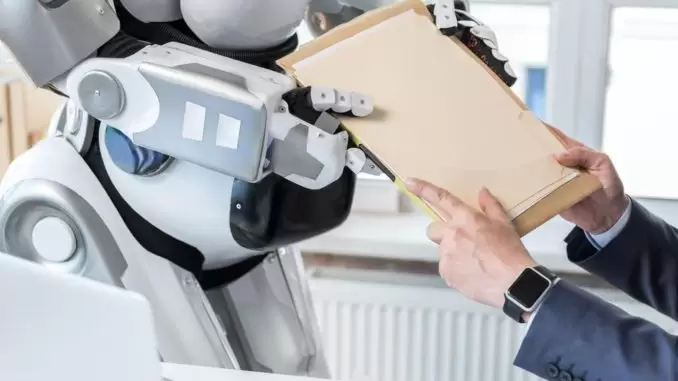
Views: 12
Study shows psychological effect of job loss through technology
Original article by TUM: Most people see it worse when workers lose their jobs with a robot or software than when they are replaced by other workers. But when it comes to their own job, they would rather be replaced by a robot than by a colleague. This is shown by a study by the Technical University of Munich (TUM) and the Erasmus University Rotterdam.
Millions of jobs are threatened in the coming decades by the use of robotics and artificial intelligence. Although this development is being discussed intensively in science, so far little research has been done on how people react to being replaced by technology in their jobs.
In order to find out, economists from the TUM and the Erasmus University of Rotterdam have tested eleven mostly experimental investigations of different scenarios with a total of more than 2,000 people from several European countries and North America. The research has now been published in the renowned journal “Nature Human Behavior”.
Self esteem suffers more from colleagues
The study shows that, in principle, most people would prefer to replace workers with other people rather than robots or intelligent software. The opposite is the case when they are personally affected. If their own job is canceled, the majority of workers would find it less detrimental when a robot displaces them than when a person takes over. Nonetheless, in the longer term, the same people see machines as a greater threat to their own professional future. These effects can also be detected in people who have recently lost their jobs.
The scientists were also able to pinpoint the reasons for these paradoxical results at first glance: people are less likely to compare themselves to machines than to other people. Therefore, their self-esteem is less questioned when they are replaced by a robot or software. This effect became apparent even when the test subjects assumed that they would be displaced by colleagues who could use artificial intelligence for their work.
Less opposition from employee representatives?
“Unemployment, which is caused by the use of technology, assess people in a social context,” says study author Christoph Fuchs, a professor at the TUM School of Management. “Understanding these psychological effects is important in order to be able to shape the massive changes in the world of work so that they do not cause any social damage.”
For example, the findings could help improve programs for the unemployed. “If people have lost their job to a robot, it is less necessary to strengthen their self-confidence,” says Fuchs. “It is more important then to give them new skills that rob them of the long-term inferiority of robots.”
The study could also be the basis for further research at other economic levels, says Fuchs: “It is possible that employee representatives are less opposed to job losses caused by robotic intervention than to other justified deletions, for example outsourcing to other employees.”
Publications:
Granulo, Armin, Fuchs, Christoph, Puntoni, Stefano: Human Behavior 2019. DOI: 10.1038 / s41562-019-0670-y
Leave a Reply